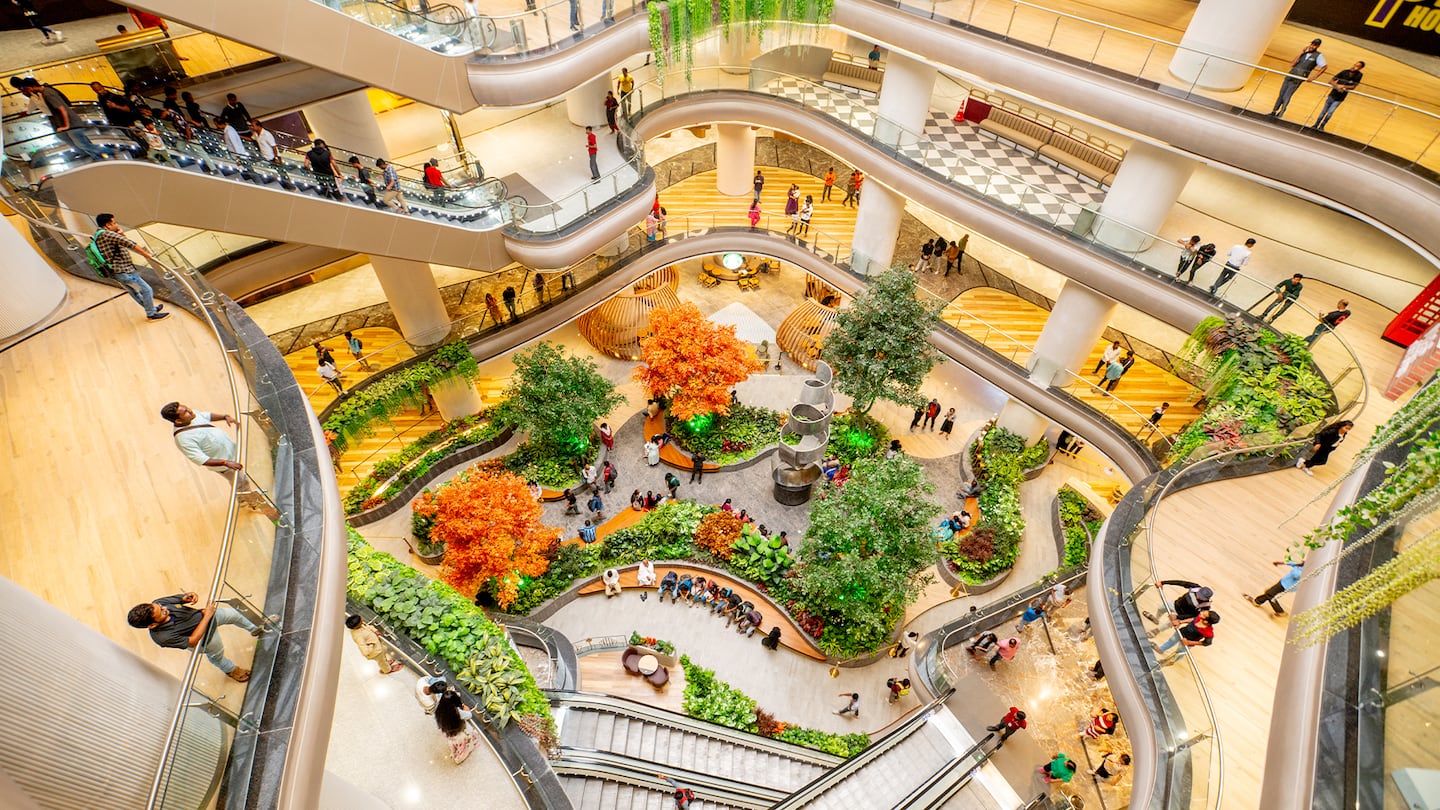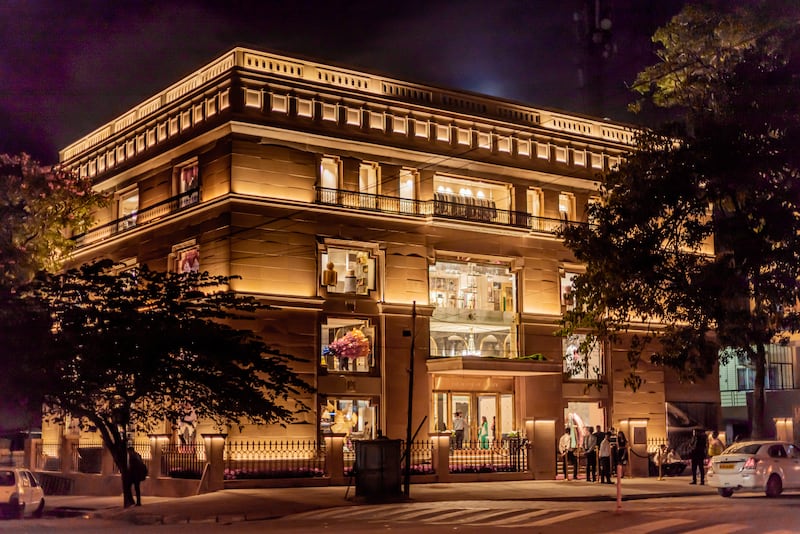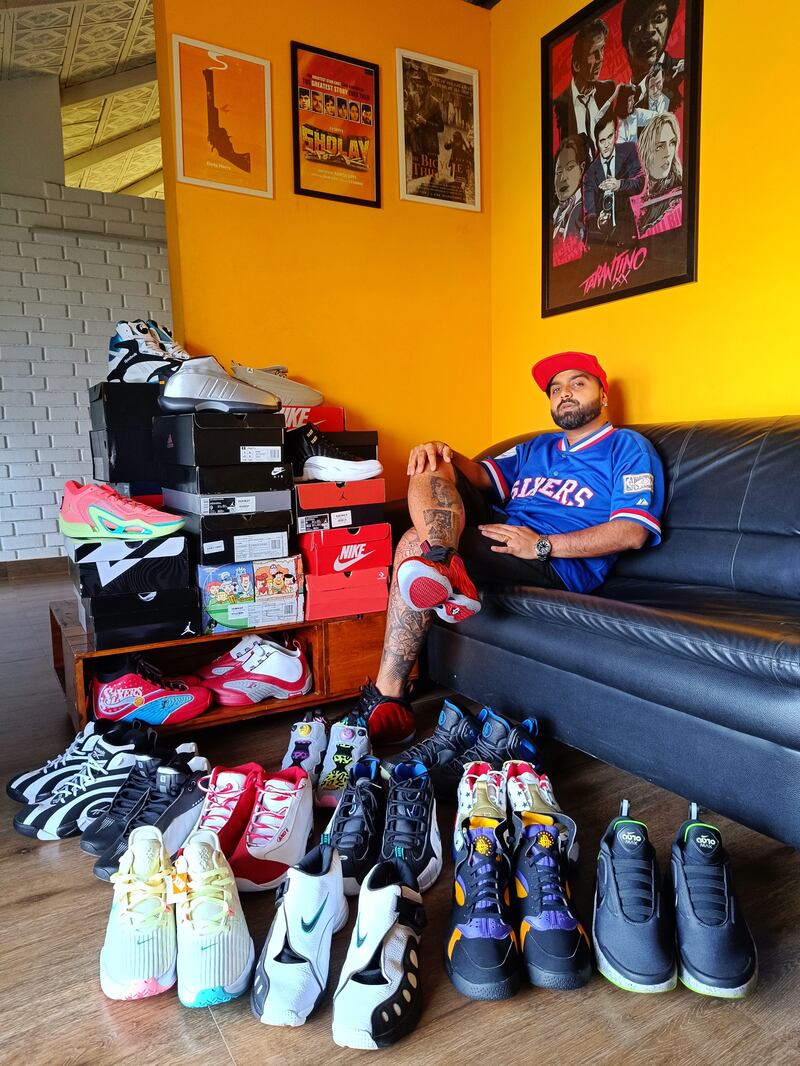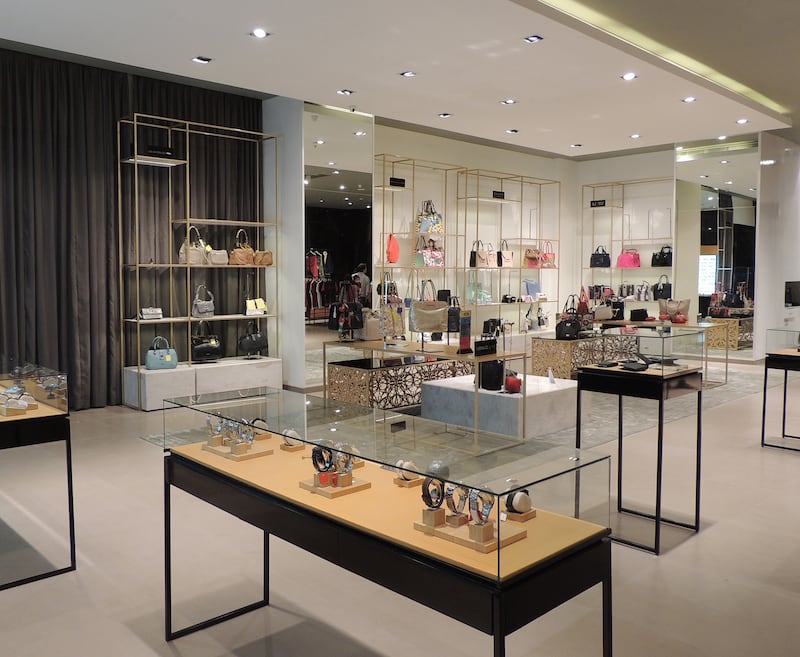
The Business of Fashion
Agenda-setting intelligence, analysis and advice for the global fashion community.

Agenda-setting intelligence, analysis and advice for the global fashion community.

For a certain group of people in ‘India’s Silicon Valley’, status is everything. The city at the heart of this dynamic tech hub, Bengaluru, has become a centre of wealth and an engine of ambition for the country.
“Louis Vuitton bags are more common [here] than grocery bags. Everyone has them,” joked Aviva Bidapa, referring to the shopping habits of affluent residents of her hometown which many still call Bangalore.
Of Louis Vuitton’s four stores in India, only one is located outside of Mumbai, the country’s financial centre, and New Delhi, its capital. The French mega-brand opened a boutique in the UB City mall in Bengaluru’s central business district fifteen years ago (before closing a Chennai store in 2014).
The wealthy tech entrepreneurs, industrialists and financiers who helped transform this former ‘pensioner’s paradise’ into a hi-tech economic powerhouse over the last three decades have raised children and grandchildren who are accustomed to the luxury lifestyle. Though they will also inherit the family fortune, many of these younger generation consumers are already high-earning professionals in their own right.
ADVERTISEMENT
“I’ve lived here all my life, and the change is mind-boggling,” added Bidapa, who founded her namesake luxury swimwear brand Aviva seven years ago to cater to the Bengaluru residents she saw trading up all around her as the city became India’s foremost information technology (IT) hub.
India is touted as a “rising star” for the global luxury goods industry, with spending by Indian consumers expected to hit €25 to €30 billion ($26.8 to 32.2 billion) by 2030, up from less than €8 billion in 2022, according to Bain & Company. Urban markets like Bengaluru are key to harnessing that growth potential.
With a metro area population of over 10 million, it is the third most populous city in the country and the capital of the southern state of Karnataka. Technology, manufacturing and start-up wealth are driving Bengaluru up the ranking of Indian cities with the highest number of high-net-worth individuals (HNWIs).
According to a 2023 report by Henley and Partners, a HNWI residency service provider, Bengaluru boasts 12,600 millionaires, 50 centi-millionaires and 8 billionaires, making it the third richest city in India, behind Mumbai and Delhi and just ahead of Hyderabad and Kolkata.
Indian IT giants like Infosys and Wipro are headquartered in the city as are prominent science and technology institutions like the Indian Space Research Organisation and Hindustan Aeronautics Limited.
With this enviable cluster of tech talent, Bengaluru is increasingly attractive to multinationals. Last year, Apple leased a huge office space in the city, intended to become one of its capability research centres, central to the company’s plan to manufacture a quarter of all iPhones in India by 2025, according to a report by JP Morgan.

“[Bengaluru’s] IT boom has opened the market for luxury brands to do well,” said Aviva Bidapa.
Evidence of this can be seen by the sector’s ongoing expansion across the city. The same mall where Louis Vuitton is located, UB City, also houses brands like Versace, Jimmy Choo, Coach, Ferragamo, Canali, Burberry and Michael Kors.
ADVERTISEMENT
Locals’ growing embrace of international luxury and bridge-to-luxury brands is also evident at the Phoenix Mall of Asia. The lavishly appointed shopping centre, which opened in October 2023 and is spread over 13 acres, has a selection of more than 200 national labels and 160 international brands across fashion, beauty and lifestyle. The real estate developer behind it was an early entrant to the local retail market.
“In 2011, we entered the Bengaluru market with the launch of Phoenix MarketCity in Whitefield, which swiftly established itself as one of the best-performing retail assets in our portfolio,” said Atul Ruia, chairman of The Phoenix Mills Limited.
Bengaluru’s status as a cosmopolitan city comprising a young working population with relatively high disposable incomes makes it ripe for further investment by global luxury brands. However, experts also point to its reputation as a more conservative market, where an emphasis is often placed on local luxury categories such as gold, silk saris and jewellery. Some suggest that the city’s famed “techie” consumer, who skews casual in style, is comparatively cautious about luxury goods spending.
How can brands manage these complexities while making headway in this fast-paced market?
“[Bengaluru’s] techies tend to invest more in real estate and stock markets than in luxury shopping. They are, however, evolving slowly into shopping at stores like The Collective (the Aditya Birla Fashion & Retail Limited-owned chain selling international brands) and Indian designer stores like Shantanu & Nikhil, Abraham & Thakore and Tarun Tahiliani’s Tasva, which again offer affordable luxury,” said Prasad Bidapa, a Bengaluru-based fashion stylist, event manager and model agency owner.
“The techies still work a lot from home, so athleisure and high-street brands are their preferred choice,” he added.
In addition to ‘new money’ customers from the tech sector, there are also ‘old money’ clients with distinct spending habits. Bengaluru was a prosperous centre for large industries like machine tooling and garment manufacturing long before it became a tech hub, attracting developments to the north of the city.
For the city’s established luxury clientele — families based mainly in the south of the city — a first point of call might be the desirable, tree-lined residential neighbourhood of Jayanagar and its popular 4th Block shopping complex. The multi-brand Indian designer store Ensemble is located there. Or on Jayanagar’s 1st street, where KH Radharaman, textile entrepreneur and founder of fashion label Alamelu, opened Angadi Heritage, an opulent marble-lined, antique-filled four-storey store, selling silk saris and a selection of contemporary Indian designer brands.
ADVERTISEMENT

“As far as various micro markets for luxury — unlike many major Indian cities like Mumbai and Delhi — Bengaluru is a very developed and organised retail market,” said Radharaman, citing Indira Nagar’s 100 Feet Road for branded apparel and food and beverage; Commercial Street for tailoring and jewellery; and more recently Jayanagar for jewellery and saris and Vittal Mallya Road for international luxury.
“There has been better segmentation in Bengaluru, which offers better brand adjacency,” Radharaman added.
In addition to the tech professional demographic, international brands must get to grips with other consumer cohorts that make up this multi-faceted city. Bengaluru’s location in south India means it has a distinct character and identity from its metropolitan counterparts in the north and other regions.
The city is home to the Kannada film industry, producing movies in the language spoken across Karnataka state. While the cultural and economic dominance of Bollywood — mostly Hindi-language cinema centred in Mumbai — and Hollywood continue across much of the country, regional film industries remain important. Not only are Kannada actors potential clients in their own right but also an opportunity for foreign brands to localise their marketing efforts by engaging them as influencers at a time when national campaigns disproportionately cast Bollywood stars.
The city also hosts an Indian Premier League cricket team, the Royal Challengers Bangalore, whose sportsmen represent a similar opportunity off the pitch.
Aligning with such regional celebrities could help luxury brands appeal to new client groups in Bengaluru in an authentic way, resonating more deeply with diverse audiences.
More broadly, local industry leaders cite growing opportunities in the premium sportswear and streetwear sectors, notably locals who splash out on limited edition sneakers, apparel and accessories. “Right now, it’s the software engineers, CEOs, start-up founders and celebrities who are mainly into collectable sneakers,” said photographer and sneaker enthusiast Nandith Jaisimha, who has helped drive the growth of the sneakerhead community in Bengaluru through his Instagram account Sneaker Stories India.
“Nike global never took India seriously but if you look at the sales and numbers in Bengaluru, it has skyrocketed,” he claims, pointing to interest from the city’s venture capital and tech professionals. “Most techies [here] wear kicks like Nike Air Force 1s, Air Max, Adidas, and Jordans. The mid-rung and the top tier employees are usually more inclined towards premium brands like On Cloud, New Balance and Asics,” he added.

Unlike Mumbai’s Kala Ghoda district, which is fast becoming a shopping destination with stores like Hermès and Sabyasachi located near the Horniman Circle with its grand streets of Victorian Indo-Gothic buildings, Bengaluru doesn’t have a heritage area that is immediately suitable for brands to gentrify. Instead, malls and online retailers have become the default channels for international luxury brands to establish their presence in the city.
“For Tata Cliq Luxury, [Bengaluru] is one of the top markets driving maximum visits and revenue,” said Gopal Asthana, chief executive of Tata Cliq Luxury, an Indian e-commerce major selling accessories from the likes of Burberry and Ermenegildo Zegna. “From a growth perspective, pure luxury is the fastest-growing segment across all cities on our platform [but in Bengaluru] it is growing at a much faster pace.”
“From a gender perspective, we do see that men are more frequent shoppers [there],” he added. “And with the launch of TimeVallée on our platform earlier this year, we’ve been seeing a lot of demand for luxury watches like Cartier.”
Timepieces comprise a significant proportion of the tenant mix at the Phoenix Mall of Asia too. The shopping centre, located just half an hour’s drive from Minsk Square in Hebbal, features brands like Rolex, Jaeger LeCoultre and Hublot in a setting inspired by nature called The Eden Arcadia.
Luxury brands may be eyeing up Bengaluru for all the right reasons but Radharaman cautions that some perennial sticking points across the Indian luxury market hold true in this city too.
“International luxury is well understood in Bengaluru since the city is home to many well-travelled residents who shop across the world and shop online regularly [but] it is this very fact that diminishes local sales of international luxury. And given our duty structure, the price of all luxury goods in India is higher than in other [markets] like Dubai, Singapore or Europe [and even] more so when you factor in the duty refunds that are available abroad.”
However, international luxury can be a thriving local business if retailers get the proposition right, believes Amit Pande, brand head of The Collective, a nationwide multi-brand fashion chain. “Bengaluru, where [our] first ever store was opened, is a special city where we have relationships going back 15 years,” he said.
“[Our] average customer travels to 1.63 countries every six months [so] they have every opportunity to make their purchases from anywhere in the world [but] they keep coming back to [us] because here they find a curated collection that suits their taste and our staff that puts the client’s interest at the top,” he added.
Pande’s insights around local buyers’ expectations for superior customer service, personalisation and curated experiences are key to understanding the Bengaluru luxury opportunity. But for brands to make the most if this boomtown, they must also adapt their approach to the city’s unique culture and character.
Brands like Dior and Valentino are banking on India’s high growth potential, but it will take more than dazzling shows and sleek stores to turn this complex market into a major revenue source.
Industry leaders are divided on whether Galeries Lafayette’s expansion into India will spur other luxury department stores to enter the rapidly growing market.
Global brands must navigate a jewellery market dominated by local giants with nationwide store networks looking to expand overseas and acquire domestic rivals.
This week’s round-up of global markets fashion business news also features Latin American mall giants, Nigerian craft entrepreneurs and the mixed picture of China’s luxury market.
Resourceful leaders are turning to creative contingency plans in the face of a national energy crisis, crumbling infrastructure, economic stagnation and social unrest.
This week’s round-up of global markets fashion business news also features the China Duty Free Group, Uniqlo’s Japanese owner and a pan-African e-commerce platform in Côte d’Ivoire.
Affluent members of the Indian diaspora are underserved by fashion retailers, but dedicated e-commerce sites are not a silver bullet for Indian designers aiming to reach them.